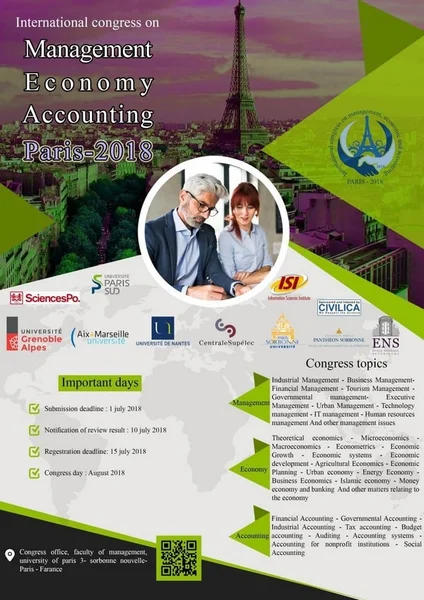-
evaluation of cost-effectiveness and cost-benefit of newborn screening for phenylketonuria in hamadan, iran
جزئیات بیشتر مقاله- تاریخ ارائه: 1397/05/01
- تاریخ انتشار در تی پی بین: 1397/05/01
- تعداد بازدید: 213
- تعداد پرسش و پاسخ ها: 0
- شماره تماس دبیرخانه رویداد: -
objective: this study assesses the cost-effectiveness and cost-benefit of newborn screening for phenylketonuria in hamadan, iran.
method: all direct costs of screening program for phenylketonuria,costs for recall of suspected patients and cost of diagnostic laboratory exams, treatment andrehabilitation of unscreened mental retard patient were calculated and compared using decision tree model. for evaluation of efficacy, intelligence quotient (iq)of 15 patients who had beenscreened in 2 years ago, was compared with 15 healthy child using "wechsler test". data were analyzedusingspss software.
result: results show that costs of treatment of identified screened patients an unscreened patients was 324152000rls (7718$) 1and 337138000 rls (8027$) respectively. screening program for phenylketonuria lead to saving 12786000 rls(305$) for each patient and is cost benefit. in control group, 60% of persons had highaverage iq and 27% had superior iq. in case group, most of patients (87%) had average iq.
conclusion: newborn screening for phenylketonuriais shown to be cost-effective and cost-benefit. this program not only is cost saving for health system but also is successful to decrease mental retardation development.
مقالات جدیدترین رویدادها
-
استفاده از تحلیل اهمیت-عملکرد در ارائه الگوی مدیریت خلاقیت سازمانی و ارائه راهکار جهت بهبود
-
بررسی تاثیر ارزش وجوه نقد مازاد بر ساختار سرمایه شرکت های پذیرفته شده در بورس اوراق بهادار تهران
-
بررسی تأثیر سطح افشای ریسک بر قرارداد بدهی شرکت های پذیرفته شده در بورس اوراق بهادار تهران
-
بررسی تأثیر رتبه بندی اعتباری مبتنی بر مدل امتیاز بازار نوظهور بر نقد شوندگی سهام با تأکید بر خصوصی سازی شرکت ها
-
تأثیر آمیخته بازاریابی پوشاک ایرانی بر تصویر ذهنی مشتری پوشاک ایرانی (هاکوپیان)
-
سنجش میزان رضایت ساکنین از شاخص های کمی و کیفی مسکن مهر (نمونه موری: مسکن مهر شهر خرم آباد)
-
تاملی نو در مبانی فقهی وجوب حکم حجاب بانوان
-
تعیین پیکربندی بهینه میراگرهای فلزی در قاب فولادی با استفاده از روش تحلیل زمان دوام
-
energy bound for sign changing solutions of an asymptotically linear elliptic equation in rn
-
aggregation of nanoparticles in high ionic strength suspensions: effect of hamaker constant and particle concentration
مقالات جدیدترین ژورنال ها
-
مدیریت و بررسی افسردگی دانش آموزان دختر مقطع متوسطه دوم در دروان کرونا در شهرستان دزفول
-
مدیریت و بررسی خرد سیاسی در اندیشه ی فردوسی در ادب ایران
-
واکاوی و مدیریت توصیفی قلمدان(جاکلیدی)ضریح در موزه آستان قدس رضوی
-
بررسی تاثیر خلاقیت، دانش و انگیزه کارکنان بر پیشنهادات نوآورانه کارکنان ( مورد مطالعه: هتل های 3 و 4 ستاره استان کرمان)
-
بررسی تاثیر کیفیت سیستم های اطلاعاتی بر تصمیم گیری موفق در شرکتهای تولیدی استان اصفهان (مورد مطالعه: مدیران شرکتهای تولیدی استان اصفهان)
-
ارزیابی تأثیر ارتباطات سازمانی اثربخش بر بهبود خلاقیت سازمانی و شکل گیری همدلی سازمانی
-
استفاده صلح آمیز از انرژی هسته ای از منظر حقوق بین الملل با تاکید بر بیانات رهبری
-
کاربرد ابزار هوش مصنوعی در پیش بینی مصرف انرژی ساختمان
-
تأثیر تمرینات پیلاتس بر نیمرخ لیپیدی زنان غیر فعال دارای اضافه وزن
-
electrochemical sensors; types and applications in the food industry




سوال خود را در مورد این مقاله مطرح نمایید :